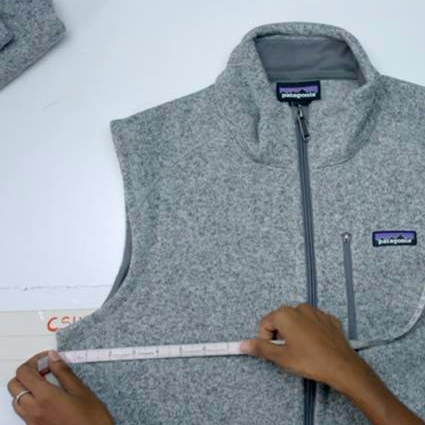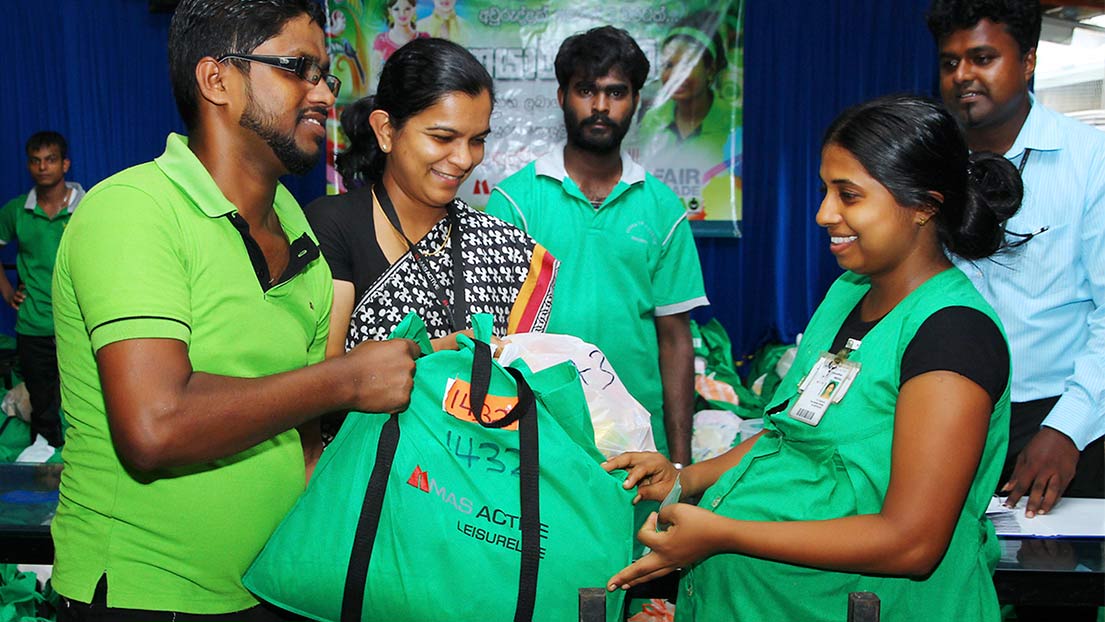Patagonia | Fair Trade Fleece

Just as you thought Patagonia couldn’t get any better at making the best product with the cleanest fabric and smallest footprint possible, it launches the Fair Trade Fleece program. A movement that supports the people behind the product. A refreshing strategy from a responsible brand.
Every time a Patagonia Better Sweater, Synchilla Snap T Pullover or a Retro Pile style is purchased money gets directed back to the factory employees who crafted them.

For every Fair Trade Certified item sewn, Patagonia pays a premium. The money goes into an account that the employees maintain (not the management), controlled by a democratically-elected Fair Trade worker committee. This group then decides how the funds are used, whether designated for social, economic and environmental community projects or as a cash bonus that helps employees get closer to a living wage.
Fair Trade’s approach generates both better pay and employee participation in the life of a community. It also helps create better working conditions and safeguards against the use of child labour.
All Fair Trade Certified factories have thorough health and safety standards, respect for the environment, zero child or forced labour, maternity and paid leave, a sense of empowerment throughout the community and drives additional money back to the workers.
This program has also improved dialogue between employees and management; another vital aspect of Fair Trade. In one factory, upon learning that Fair Trade committee were contemplating spending a percentage of their premium on building a kitchen, the management recognised this as a basic need it should provide and paid for a new kitchen.
3 real-life examples of Fair Trade at Patagonia
In Hirdaramani, Sri Lanka, employees voted to open a daycare centre that provided workers with free child care; this meant parents could continue working as opposed to staying at home, which improved financial landscapes for each family. In addition to this, employees also established a health and sanitation program that’s provided a place for employees to voice any health concerns plus resources that addresses basic health and hygiene issues (often considered a taboo in their culture). This amendment has had a drastic impact on the employees’ physical and mental well-being, resulting in greater personal comfort and improved productivity at work. To top this off, employees were also handed coupons to pay for a variety of essentials prior to their annual New Year’s holiday.

In the Nature USA factory in California a vote was made to take their share of the money (which equated to one or two weeks’ pay) as a cash bonus. The staff used the extra money for things such as healthcare, school fees and holidays. One of the reasons Fair Trade was established was to help employees earn closer to the minimum wage. At Nature USA, tangible results are evident.

At the MAS Active-Leisureline factory in Katunayake, Sri Lanka, employees voted to use the Fair Trade premiums to pay for household basics and medicine. Roughly 525 employees received their premium in 2016. They used this additional money to buy packs of essential household essentials including dry foods, toiletries, medicine and personal products. This would have cost them around two weeks’ pay, plus they benefited from 10% off the retail price as well as free delivery. This might not seem like an exciting way of spending a bonus but the money saved meant that they had extra money to be spent elsewhere. The first delivery of premiums arrived just before the Sinhala and Tamil New Year; a timely welcome before an important period of celebrations.

Overall, more than 15,700 employees have benefitted from the premiums Patagonia has paid through the Fair Trade Certified program. Not only have employees benefited financially, this program has improved lives and increased pride, dignity, hope and self-confidence.
As the program has been such a hit amongst employees, factory owners and customers interested in change and progress, Patagonia’s participation in Fair Trade has grown at quite a rate. In 2014 Patagonia started off by offering 11 Fair Trade styles via one factory. By spring this year, Patagonia offered 287 styles via ten different factories. Today, the Patagonia Fair Trade offering has grown to 480 styles including 94 fleece styles via 14 different factories.
All our Patagonia Better Sweater, Synchilla Snap T and Retro Pile styles are Fair Trade Certified crafted, through Fair Trade Certified sewing and crafted with bluesign approved fabrics. Bluesign technologies evaluate and reduce resource consumption in the material supply chain, managing the chemicals, dyes and finishes used in the process making sure the products are safe for the environment, factory employees and for the customers. Back in 2007 Patagonia was the first official partners to join the bluesign system network.

This is very inspirational stuff and certainly gives you another reason to invest in Patagonia. Like you needed one.